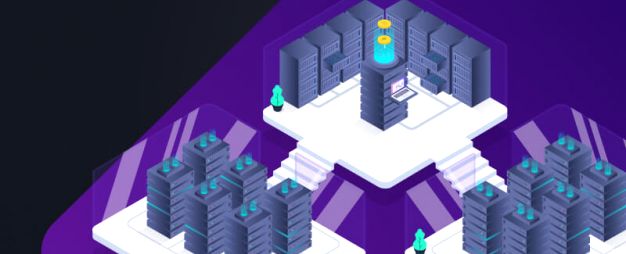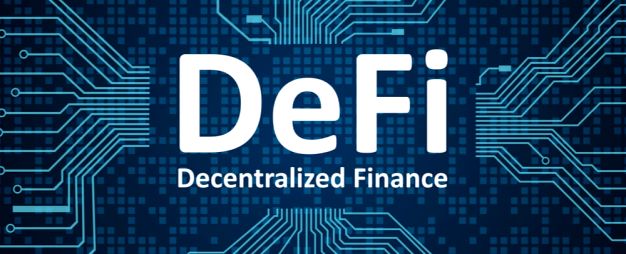What is Cloud Mining?

The cryptocurrency market is currently the most promising niche for improving one's financial status and achieving substantial prosperity. Depending on knowledge and skills, income can be generated in various ways. Recently, newcomers to this sector increasingly ask the question: what is cloud mining? While many have already grasped the conventional cryptocurrency mining scheme both in theory and practice, the online format still has some unclear aspects. To clarify them, it is enough to delve into the topic, understand the pros and cons, and ultimately decide how convenient it is to earn income through cloud mining, considering how it works.
What is Cloud Mining, and How Did It Emerge?
Originally, cryptocurrency mining involved the need to purchase specialized equipment and install specific software. The components and type of software directly depended on the cryptocurrencies to be mined and the expected profitability in the future. As the cryptocurrency sector developed, a much larger number of digital coins emerged, creating new opportunities for earning. However, the complexity of all computational processes increased and continues to do so. New types of equipment are introduced, which can be expensive, and collective mining pools are established to combine computational power. All of this yields results.
Cloud mining became a fundamentally new breakthrough in the world of technology. Essentially, this strategy involves mining on cloud servers. In other words, potential cryptocurrency miners do not need to buy and configure equipment. It is sufficient to connect to a special service, of which there are already quite a few today, sign a contract for renting computational power, and use any digital device for cryptocurrency mining. The reward is distributed proportionally among all participants in the system each time a new block is obtained. The company providing computational power for rent from its equipment earns a certain percentage of the reward amount as a service fee.
Differences Between Cloud Mining and Traditional Mining, Operating Principle
In simple terms, cloud mining is a remote format of cryptocurrency mining that requires absolutely no initial investment. All expenses for purchasing and setting up equipment are taken care of by the company that provides cloud mining services.
The profitability of such activity depends directly on the following factors and conditions:
- The hash rate rented on the special platform.
- The cost of the contract.
- The duration of the contract.
Additional factors affecting profitability may include the availability of special programs for clients. For example, joining a referral program, where profit is generated from a percentage of the contract amount for each referred client.
Types of Cloud Mining
The rapidly developing field of cloud mining has led to the existence of not just one but several formats in which mutually beneficial cooperation can be established with major services.
Primary types of cloud mining:
- Hosting: In this case, the miner rents a ready-made farm installed in a remote data center.
- Virtual hosting: In this scenario, miners are provided with virtual servers for temporary use, and the miner chooses and installs the software, as well as personally controls the cryptocurrency mining process.
- Rental of computational power: In this case, the miner does not have direct access to the equipment; they do not invest in its maintenance. Instead, they connect through a special application to the mining process, and the company, not the miner, decides which digital currency will be mined.
The most in-demand method due to significant advantages is the last one—the organization of remote cloud mining. The main reasons include the extreme simplicity of launching the project, quick connection to the system, even without financial investments.
How Profitable is Cloud Mining?
When assessing the prospects of cloud mining, it is necessary to understand not only what it is but also the associated risks. Profitability can be forecasted, thanks to options provided by implemented tools on reliable and proven services. However, it is crucial to always consider the fact that cryptocurrency is a highly volatile asset. Therefore, its value can change very quickly, both upwards and downwards. In the former case, profitability will be higher than expected, while in the latter, a significant financial downturn may occur.
Considering that, in cloud mining, the miner does not have direct access to the equipment and often does not decide what to mine, the profitability is usually somewhat lower than with the classical method.
Advantages and Disadvantages of Cloud Mining
Cloud mining is an intriguing idea for passive income. However, before exploring the rankings of the best services, it is essential to rationally evaluate all the pros and cons.
Advantages of Cloud Mining:
- Quick Entry into Operational Mode: Connecting to the service takes only a few minutes, ensuring a swift transition to the working mode.
- Low Financial Costs: Miners don't need to spend on equipment, electricity, or renting space for mining farms. At most, they need to pay according to the selected contract tariff. Some platforms even allow mining for free immediately after registration in a test mode.
- Stable Income with a Reliable Platform: Choosing a reliable cloud mining platform ensures a steady income.
- No Limits on Contracts: Miners can simultaneously use computational power from different services, earning profits from various sources using the same device.
- Simple Technology: Cloud mining can be done not only through PCs or laptops but also through smartphone applications developed for this purpose.
Disadvantages of Cloud Mining:
- High Fraud Risks: Some platforms have unclear conditions and pay lower profits, while others may be fake or scam projects. Choosing a platform requires careful consideration.
- Financial Downturn Risks: Due to the fluctuation of the chosen cryptocurrency's value, there is a risk of financial loss until a new block is mined.
- Limited Remote Workability: Not all platforms support remote workability on all devices. For example, mining on smartphones may stop if the program goes into the background, which is not always convenient.
- Increased Risks of Data Breach: Regular hacking attacks on remote servers pose risks of personal data exposure.
- Lack of Automatic Switching to More Profitable Cryptocurrency Mining: Not all platforms automatically switch to mining more profitable cryptocurrencies if the previous contract is not completed.
- Inconvenient Contract Terms: Not all platforms offer convenient contract terms.
- Limited Choice of Assets for Mining: Some platforms have a limited selection of assets for mining.
Alternatives to Cloud Mining
- Staking: Investing in cryptocurrency similar to fiat deposits. Additional profit is generated through the asset's increased value. Staking can involve digital coins directly or promising mining pools attracting investor funds for service development.
- Liquidity Pools: Exclusive to decentralized cryptocurrency exchanges. Working with smart contracts involves receiving a portion of the exchange's trading commissions from transactions on the chosen service.
- Farming: Involves contributions to liquidity pools and receiving LP tokens in return. Additional profit is generated from staking altcoins, with varying returns depending on the chosen service, ranging from 2% to 500%.
- Cryptocurrency Deposits: Similar to traditional bank deposits, cryptocurrency owners lend their assets at a specific interest rate. Profits can be substantial due to the dynamic correlation of asset values.
Conclusions
Cloud mining is a convenient and interesting method for passive income. However, it is advisable to combine it with other methods and strategies to diversify risks and earn income from multiple sources, avoiding reliance on a single type of activity.







